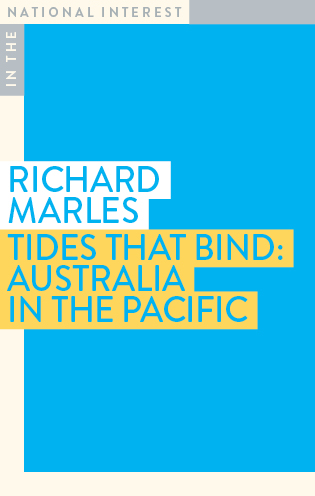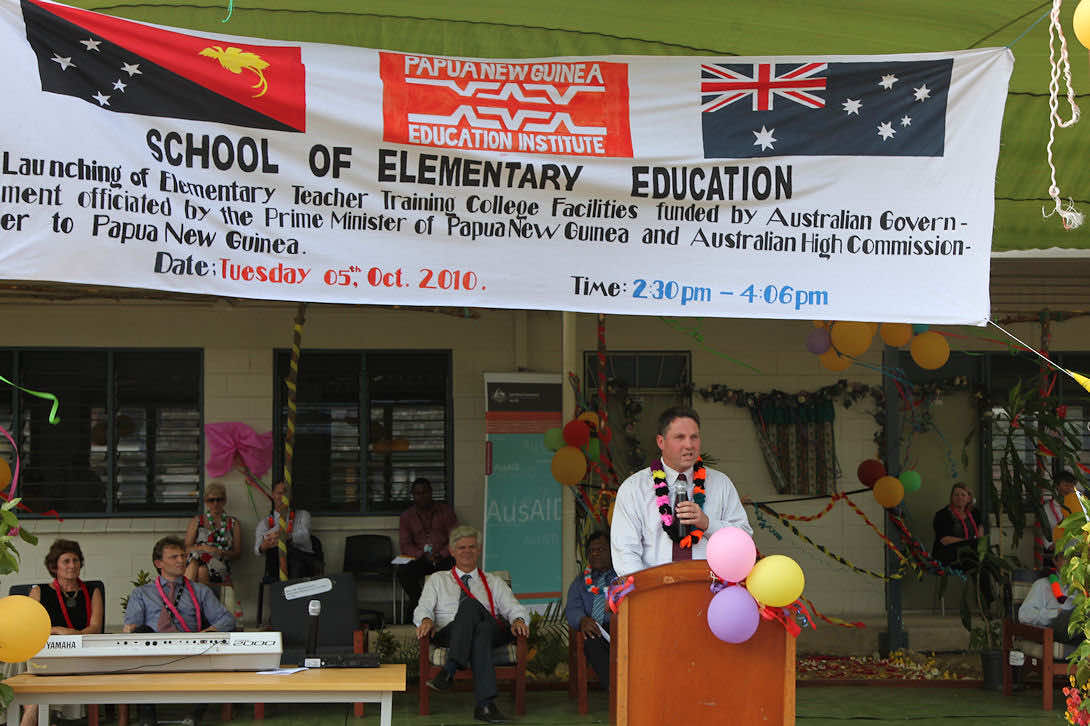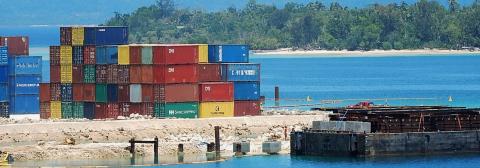
Book review: Richard Marles, Tides That Bind: Australia In The Pacific (Monash University Publishing, 2021)
There’s much to like in Richard Marles’ new essay on Australia’s relations with the Pacific, Tides That Bind. Above all is the author’s passion for his subject. Those who have had the privilege of working with him know that this passion is genuine and deeply felt.
Marles, a former Parliamentary Secretary for Pacific Island Affairs in the Gillard government, later Trade Minister, and now deputy federal Labor leader, acknowledges that Australia is not without major strengths and assets in the Pacific Islands region. He nonetheless makes a heartfelt pitch for more imaginative and ambitious Australian leadership.
Of course, Australia has long seen itself in a leadership role in the region even if, at times, this has been expressed more in terms of strategic denial than in more constructive ways. Australian leadership is an appropriate vision and policy objective; still, since the decolonisation of much of the Pacific in the 1960s, 70s and 80s, Australia has had to behave not only as a leader, but also as a partner, of the independent states of the region which are understandably jealous of their sovereignty. As Marles himself would know, getting this balance right is easier said than done. One wonders whether his contention that the Pacific is “desperately” seeking greater Australian leadership might not be disputed by many in the region – even if only out of self-respect.
Marles is right to remind his Australian readers of the tremendous and multidimensional development challenges facing many countries in the region, both large Melanesian states such as Papua New Guinea and Solomon Islands, and small island states such as Kiribati, Tuvalu and the Marshall Islands. His concern – perhaps anguish is a better word – that Australia hasn’t been able to do better in fostering human development in the region (to “transform its trajectory” in his words) comes through clearly.
He is certainly right to argue that Australia’s relationship with the Pacific shouldn’t be seen solely through the lens of its aid program. Even so, with Australian aid to the region now at a historic high of $1.4 billion, Marles has surprisingly little to say on how it might be better deployed. He makes much of the differences between Australia and the Pacific on climate change; in time, he may well discover that his own party’s position on this set of issues would also fail to satisfy outspoken governments and advocates in the region.

The essay highlights that Pacific access to Australia’s labour market, initiated in the Rudd/Gillard period and considerably expanded under subsequent Coalition governments, has become increasingly significant for relations between Australia and the region. Marles notes that labour mobility has been interrupted by Covid-19, although he might also have noted the special efforts that have been made to bring in Pacific Island workers during this period. Looking to the future, Marles endorses the idea of “an ambitious agenda for access by Pacific nations to the Australian economy” – a worthy vision, although one could be forgiven for wanting some greater detail on what this might mean in practice, including in terms of new pathways for permanent migration.
The current government’s Pacific “Step-up” is given mostly short shrift by Marles, and unfairly so. His claim that the Step-up was “largely inspired … by a series of reports in the Fairfax media about the prospect of a Chinese military base being built in Vanuatu” is simply not borne out by the facts. Nor does he acknowledge the unprecedented investment by Scott Morrison – unmatched by any previous prime minister, Liberal or Labor – into relations with Pacific counterparts.
Notwithstanding his ungenerous assessment of the current government’s approach to the Pacific, the essay provides welcome reassurance that the importance of the Pacific is acknowledged on both sides of politics in Australia.
On China, Marles is at pains to emphasise the sovereign agency of Pacific Island countries, and to caution against an Australian policy based solely on strategic denial. That’s sensible as far as it goes, but Marles undermines his argument by setting up a straw man: “the idea that Pacific nations would adhere to a call from Australia to not engage with China is silly”. I’m not aware that Australia has ever made that case to Pacific Island governments. One can perhaps see the point Marles is trying to make in saying “How China relates to the Pacific is the Pacific’s business”. But the implication here is also that it’s none of Australia’s business. Maybe he didn’t intend it that way, but that seems a surprising observation coming from a former shadow defence minister. It’s legitimate to debate the significance, for Australia, of China’s relationships in the Pacific. But it’s wrong to suggest they’re not Australia’s business, too.
Towards the end of his essay, Marles implies that Australia faces a choice between its geostrategic interests in the Pacific, and its interests in supporting and fostering human development in the Pacific. The truth is that Australia does not have the luxury of making that choice and must manage both imperatives as best it can.
In the end the essay is stronger on sentiment than policy proposals, but that sentiment is generous and warm-hearted. Notwithstanding his ungenerous assessment of the current government’s approach to the Pacific, the essay provides welcome reassurance that the importance of the Pacific is acknowledged on both sides of politics in Australia. Marles is to be congratulated on a thoughtful and stimulating contribution that will encourage people to think about this essential topic.


